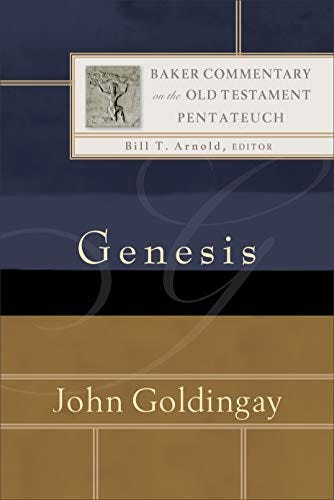Goldingay on Genesis
John Goldingay
Genesis
Baker Commentary on the Old Testament Pentateuch
Grand Rapids: Baker, 2020).
Reviewed by Rev Dr Andy Judd (andyjudd.com)
There are lots of commentaries being produced, and I think that’s a great thing: commentaries are the main way that scholarship gets into the hands of people who might actually do something useful with it: preachers, Bible study leaders, theology students, etc. So I’m grateful for another great commentary on Genesis by John Goldingay.
I have no idea how Goldingay pumps these volumes out so quickly (right now he’s writing them quicker than I can review them), but the quality is, as we’d expect, very high. What I like about his commentaries in this Baker series is that he clearly has given up trying to begin with a literature review of what everyone else has said about Genesis in the last fifty years. Clearing the air of commentators could easily become an all-consuming endeavour. The most recent Currents in Biblical Research article surveying books on Genesis lists 58 volumes … and - Jumping Jehoshaphat! - it only covers books published over a 4 year period.
Instead of beginning with the conversation, Goldingay starts with the text. Only after doing his translation and initial comments will he consult a judiciously pruned list of ancient and modern commentators to see what perspectives they can add. What we get is a sensitive reading of the book of Genesis by a top scholar, rather than a harried essayist constantly looking over its shoulder. There are footnotes to other commentators, but they’re more likely to be a single well chosen nugget from Barth or Augustine than a sewer of citations covering some debate going on somewhere in an SBL seminar room. That makes for, in my experience reading it, a high ratio of gold-to-dross. I haven’t read the whole commentary cover to cover yet, but on those passages I’ve been preparing for class I found nuggets on almost every page – turns of phrase, or observations that stick with me.
The commentary has a brief introduction (you won’t find 50 pages of discussion of the Documentary Hypothesis here), then launches into the giblets of text. Each gets a brief overview, and a new translation with footnotes to anything funky in the text or translation difficulties. The translations are idiosyncratic but thoughtful (translating Eden as Lush, for instance, is probably never going to catch on with the translation committees). I will never, ever get on board with the random transliteration of Hebrew proper names (who on earth is Havvah? Oh right, Eve). On the plus side, I guess, transliterations at least level the field: being equally indecipherable to people who do know Hebrew as those who don’t.
Then comes an interpretation of the passage as a whole. This moves eventually into discussion of one or more verses. The final section is about the implications of the passage, which tends to draw the dots between the passage and broader theological themes (and it’s Christian theology we’re shooting for here, rather than a theology of the Hebrew Scriptures). This last step is the one that is hardest to rush in exegesis. So far I’ve yet to be brought to my knees in repentance or spurred into action, but granted I’m still working through the book.
There is no Hebrew script to be seen, and the comments don’t assume too deep a familiarity with biblical studies. It would be helpful for a preacher, seminary student or as a more theological conversation partner for biblical studies students. It’s not trying to displace Westermann or Wenham, nor at 800 pages is it likely to be a best-seller on the church book stall, but it is a strong contended for that important middle ground between the church and academy. I’m pleased to see Baker investing in this space in this new series.
Andy Judd is Lecturer in Old Testament at Ridley College, Melbourne, Australia.


